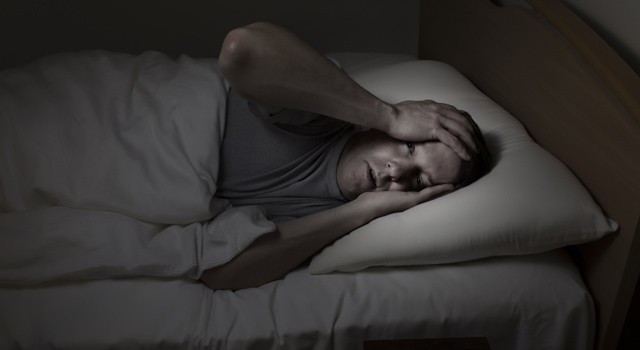Addiction recovery is a very time-consuming, complicated process, especially when you consider that it really doesn’t take all that long to become addicted in the first place. It almost seems like a cruel joke that the disease of addiction takes a matter of weeks or, at most, months to develop while recovery, on the other hand, is measured in months and years. However, despite the fact that the recovery process requires such an investment, there are many different resources available to help those suffering from alcohol and drug addiction to get their lives back even though it’s often said that the recovery process is never truly over.
There’s another common expression that pertains to recovery as well, and it’s that the real work in one’s recovery begins after he or she completes an addiction treatment program and returns home. When you stop and think about it, this actually makes a lot of sense. People in rehab will find it substantially easier to remain abstinent since the rehab affords them safety and security in the form of an alcohol- and drug-free environment. However, after returning home a person must assume responsibility for his or her own sobriety. Instead of having a safe, substance-free environment provided, he or she must ensure that his or her home environment remains conducive to recovery.
Environment is important, but keeping alcohol and drugs out of one’s home is just a single piece of a very complex puzzle. In fact, long-term recovery has many different components, one of which involves having a plan for when you experience cravings or are confronted by a trigger. One example of a trigger — and a trigger that’s very often overlooked — is drug dreams. However, let’s first take a look at the concept of dreaming and determine what the function of a dream really is.
The Purpose and Function of Dreams
If you were to ask ten different people to define the term “dream”, it’s likely that you’d hear ten unique explanations. Although we experience them almost every single day of our lives, dreams remain very mysterious and are a topic of much contention even today among experts in the field of neuropsychology. Sigmund Freud famously posited that dreams were the mind’s way of actualizing and fulfilling desires that weren’t socially acceptable and, therefore, were repressed. While liberating repressed desires is surely a function of dreaming, that’s not the sole purpose.
Modern scholars conceptualize dreams as being the mental byproduct of processing new and/or emotionally important information while also adding that information to our conceptual memory. In essence, dreams streamline our minds by consolidating our experiences and conceptual information so that we’re better able to interpret contextual information in our day-to-day life. To simplify this concept, dreams cross-reference conceptual ideas with our experiences to create a sort of ideological encyclopedia, which we use to interpret future experiences and contexts.

What Exactly is a Drug Dream?
Anyone who has abused mind-altering substances — whether or not the individual developed a full addiction — will have developed some level of mental attachment to those substances. In short, those substances start taking hold of the mind long before a person becomes addicted. He or she begins thinking about substance abuse more often, wanting more alcohol or drugs due to becoming almost obsessed after enjoying the euphoria and intoxication. The alcohol and drugs become a major focus in one’s day-to-day life and, consequently, begin showing up in his or her dreams.
It’s especially common among addicts for them to have dreams in which they are using drugs or can physically see drugs. In some cases, the sight of drugs in a dream will cause such excitement that it wakes the individual from his or her dream. Many addicts will experience extremely vivid and life-like dreams about the substances to which they were addicted, especially when they’re in recovery and more vulnerable to these images. Expectedly, this can cause a major problem.
Why Drug Dreams are a Nightmare
Picture this: An individual who is still relatively early in his or her recovery has a very life-like dream in which he or she was using whichever substance to which he or she was previously addicted. It’s only been about 60 days since the last time the individual used drugs and in the dream, he or she could practically feel the substance in hand and taste it in his or her mouth. The dream is so vivid that the individual wakes up and is momentarily confused because he or she feels as though he or she should be in the middle of getting a fix. As a result, the person is overcome with major cravings. Although the individual resists, the dreams persist, night after night. Although the recovering addict tries to push thoughts of alcohol and drugs out of mind, every this person is confronted, once again, by drugs and wakes with intense cravings.
According to researchers, having these kinds of dreams about using alcohol and drugs may actually be an omen. A study showed that dreams about alcohol and drugs were most common among people in recovery who were trying to abstain from these chemical substances. But the more interesting discovery was that these dreams seemed to indicate when a person was experiencing subconscious thoughts and temptation to relapse; the more an individual considered relapsing, the more frequently he or she would dream about relapsing. The researchers concluded that instead of these drug-centric dreams causing cravings, the more likely scenario is that the onset of cravings and thoughts of relapse will result in substance abuse-oriented dreams.
How Do You Prepare for Drug Dreams?
Since dreaming about alcohol and drugs seems to be a response to a person’s state of mind, the most effective strategy would be to try not to have these dreams at all. Obviously, there’s little to no way of controlling one’s unconscious mind; a person can’t simply command his or her mind not to dream about certain things. However, a person can find ways of avoiding spending too much time thinking about alcohol, drugs, and/or substance abuse. In the event of cravings — which are known to last only a few minutes before passing — a person in recovery should find effective ways of distracting him or herself from the desire to relapse.
In instances when a dream does occur, the best strategy is to try not to spend too much time thinking about the dream. Instead, treat the dream like a typical craving: Put it out of your mind and find other, more productive things to do or ways to engage your mind.
Call Guardian Intensive Outpatient For a Free Consultation Today!
If you or someone you love would like a free consultation with one of our recovery specialists, call Guardian Intensive Outpatient toll-free at 855-517-1871. Whether it’s day or night, we’re here to help you or your loved one begin the journey back to happiness, health, and fulfillment.




















